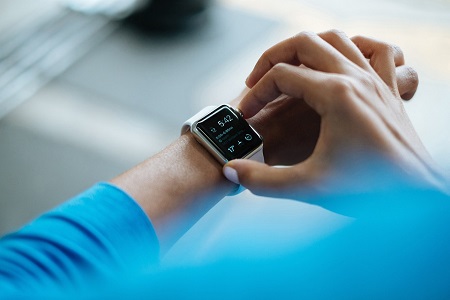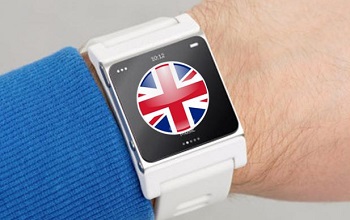There are now tons of options on the market and despite tech company hopes, they’re not taking off.
As the holiday shopping season truly got underway last year, many companies predicted the launch of powerful wearable technology trends. Firms were unveiling devices left, right and center to ensure they had the chance to become the next big thing.
That time brought the entrance of the Apple Watch and Samsung Gear S2, major wearable tech players.
Lenovo, LG and Huawei all stepped in with Google to use Android Wear on their offerings. Each company wanted to add their own device to the wearable technology trends. However, a year later and well into the next holiday shopping season, it’s clear that consumers aren’t impressed. At least, they’re not as impressed as tech firms thought they would be. They’re certainly not ready to pay the hefty price tags for the devices.
Many in the industry feel that wearable technology trends won’t pick up until smartwatches become more convincing.
 According to IDC senior research analyst Jitesh Ubrani, wearable technology companies have yet to give consumers a reason to want to buy. “A lot of what these devices can do, they’re essentially just mimicking the phone.”
According to IDC senior research analyst Jitesh Ubrani, wearable technology companies have yet to give consumers a reason to want to buy. “A lot of what these devices can do, they’re essentially just mimicking the phone.”
As most people already have other mobile devices and certainly have a smartphone, there is little motivation to buy a smartwatch. Currently, people bring their smartphones everywhere they go. As the mobile devices are nearly always in a hand or a pocket, they are not considered inconvenient to use. Therefore, asking people to drop another few hundred dollars after already having spent several hundred on the phone seems too much for many consumers.
These unfortunate wearable technology trends have not been without their casualties. Pebble, for example, announced last week that they were shutting down. That company had been among the first smartwatch companies. It had a loyal following and was able to hold its own against the competition for quite some time. Now, faced with the Apple Watch and offerings from many other giants, even Pebble will be dissolving and selling its software to Fitbit; the leader of the fitness tracker scene.
When compared to 2014, there was double the number of wearables purchased in the U.K. in 2015.
According to the data from the Mintel international market research firm, the number of wearable technology devices that were purchased in 2015 in the United Kingdom were about double the figure from 2014.
The company estimated that over a period of 12 months, people in the U.K. purchased 3 million wearables.
The wearable technology devices that were considered in these figures were smartwatches and fitness trackers. The total includes the devices purchased during the twelve months that followed September 2014. It’s important to note that, despite the tremendous growth that was recorded through these figures, they didn’t take into account the three months that included the holiday shopping season in 2015. Still, that period of one year still recorded a growth of 118 percent when compared to the twelve months previous to it. These figures align relatively accurately with the predictions that were made by IDC, last June.
Fitness trackers remain the most popular sub-category within the definition of wearable technology gadgets.
 IDC pointed out that the leader among fitness tracker wearables is, by far, Fitbit. It, therefore, remains the leader in wearable tech as a whole. The share fitness trackers held of the wearables market was currently estimated to be 63 percent, after having shipped 1.9 million devices last year. Comparatively, there have been 1.1 million smartwatches shipped in the United Kingdom, representing 37 percent of the market.
IDC pointed out that the leader among fitness tracker wearables is, by far, Fitbit. It, therefore, remains the leader in wearable tech as a whole. The share fitness trackers held of the wearables market was currently estimated to be 63 percent, after having shipped 1.9 million devices last year. Comparatively, there have been 1.1 million smartwatches shipped in the United Kingdom, representing 37 percent of the market.
When comparing these figures to the previous twelve month period, fitness trackers have seen their share shrinking. The year before the most recent results showed that fitness trackers made up 91 percent of all wearable tech sales. It was during that period that the Apple Watch was released into the U.K. market (April 2015), and a broad spectrum of different Android smartwatches also hit the shelves, such as the Moto 360 and Samsung Gear G2.
These provided consumers with more options outside of fitness trackers, allowing them to choose from among a larger range of wearable technology offerings. With more options, it’s easy to understand why fitness trackers lost some of their hold on the market as a whole in the United Kingdom.
 According to IDC senior research analyst Jitesh Ubrani, wearable technology companies have yet to give consumers a reason to want to buy. “A lot of what these devices can do, they’re essentially just mimicking the phone.”
According to IDC senior research analyst Jitesh Ubrani, wearable technology companies have yet to give consumers a reason to want to buy. “A lot of what these devices can do, they’re essentially just mimicking the phone.”
 IDC pointed out that the leader among fitness tracker wearables is, by far, Fitbit. It, therefore, remains the leader in wearable tech as a whole. The share fitness trackers held of the wearables market was currently estimated to be 63 percent, after having shipped 1.9 million devices last year. Comparatively, there have been 1.1 million smartwatches shipped in the United Kingdom, representing 37 percent of the market.
IDC pointed out that the leader among fitness tracker wearables is, by far, Fitbit. It, therefore, remains the leader in wearable tech as a whole. The share fitness trackers held of the wearables market was currently estimated to be 63 percent, after having shipped 1.9 million devices last year. Comparatively, there have been 1.1 million smartwatches shipped in the United Kingdom, representing 37 percent of the market.